8 Benefits of Mouth Taping For Sleep
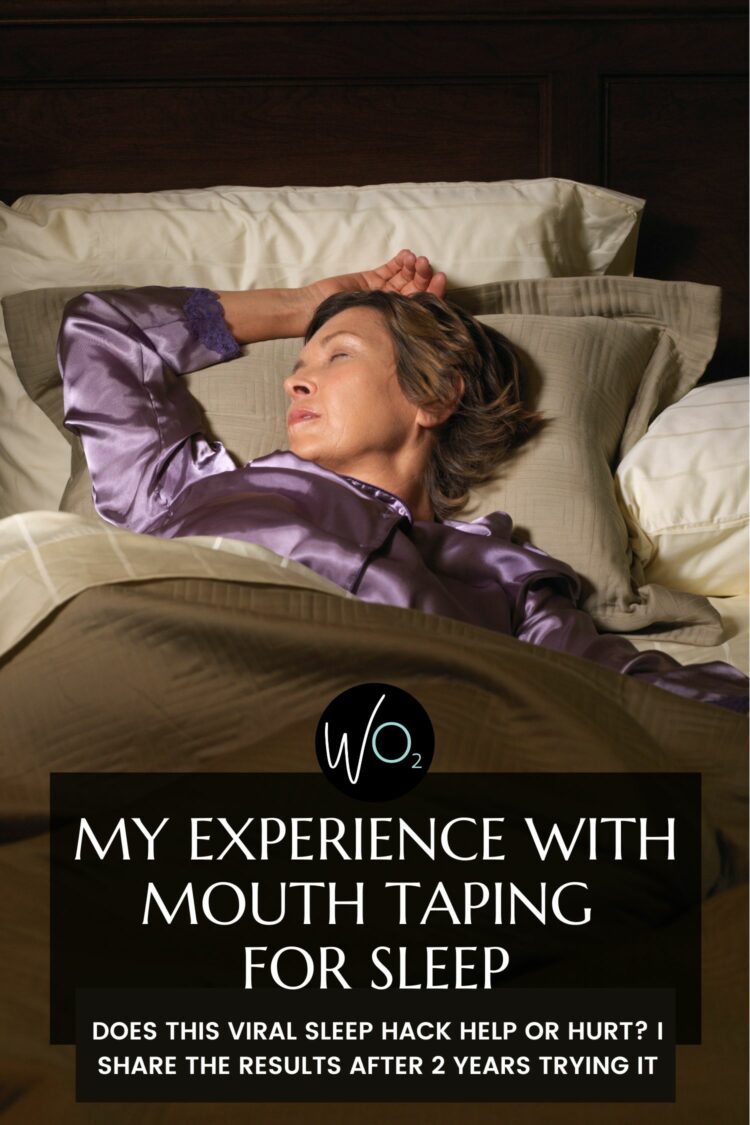
Getting enough sleep is important for so many reasons. Believe me on this one, my fellow insomniacs. Lack of sleep has the potential to negatively impact your productivity and mood, and can even contribute to many health issues. Over the years, I have personally expereienced several side-effects of sleep deprivation, especially since I reached my 40's. That's a big reason why I posted tips for the best night's sleep.
If you’re experiencing sleep problems, you’re not alone. Millions of people struggle with insomnia, sleep apnea, and other sleep-related issues. I’ve had my fair share of sleep struggles. As a result, I’ve tried what feels like hundreds of different tips, tricks, hacks, and products to get a better night’s rest.
Let me tell you: there are a lot of sleep hacks out there promising improved sleep. Even these incredibly comfortable Soma pajamas can only do so much to help. Changing my diet and using this neti pot every evening definitely helped improve my allergy symptoms and helped reduce nighttime snoring. But, what about snoring that isn’t caused by allergy-induced congestion?
For this post, I want to talk about one of the more… intriguing… hacks: mouth taping. Supposedly there are several benefits of mouth taping for sleep, but is it safe? Let’s get into it!
8 Benefits of Mouth Taping For Sleep
Mouth taping seems to be all over social media these days. Ads for mouth tape targeted at loud snorers, mouth breathers, and sleep-deprived individuals pop up on my feed multiple times daily. The practice has even caught the attention of sleep medicine specialists.
Despite my ability to fall asleep anywhere, I struggle with staying asleep and waking up feeling rested. I was intrigued by mouth tape so I decided to learn more about it. I’ll share what I learned and whether I think it might be worth trying.
There can be plenty of benefits of mouth taping for sleep, but what exactly does it involve? Before you reach for the nearest roll of tape, let’s dive into the actual benefits of mouth taping to better understand this latest trend.
What Is Mouth Taping?
Mouth taping is the practice of taping your mouth shut by placing porous tape vertically across your closed lips before falling asleep. According to the Cleveland Clinic, it’s meant to help prevent mouth-breathing and snoring and encourage breathing through your nose.
Mouth breathing can cause snoring, as well as dry mouth, and bad breath. Not to mention it can disturb your bed partner who also wants to sleep!
Breathing through your nose is preferable because as air moves through your nasal cavity, meaning it’s warmed, humidified, and filtered. Nasal breathing activates your body’s stress-reducing and relaxing parasympathetic nervous system.
There hasn’t been a lot of research on mouth taping and its effectiveness, but a few small studies show evidence to support promising results.
A small pilot study of 30 people with mild sleep apnea found that wearing adhesive patches over their mouths during sleep for three nights slightly reduced the intensity of their snoring, as reported by each person’s bed partner.
In another study, 20 mouth breathers with mild sleep apnea wore mouth tape while sleeping. Thirteen reported that they snored less intensely with the tape compared to sleeping without it. With results like that, the benefits of mouth taping for sleep seem pretty promising.
Is Mouth Taping For Sleep Safe?
Taping your mouth shut restricts your ability to take full, deep breaths. The tape can also cause skin irritation, an allergic reaction, acne breakouts, or a rash from the tape. You should never use duct tape or any other kind of tape that isn’t meant for your body, for any reason.
There are several things to consider before practicing mouth taping. If you or your bed partner notice symptoms like snoring, gasping for air, or breathing while sleeping that stops and starts again, you might have obstructive sleep apnea. Additional symptoms include daytime sleepiness, dry mouth, headaches, and frequent waking up to use the bathroom. In this case, it’s imperative to talk to your doctor. Mouth taping isn’t a substitute treatment for sleep apnea.
Untreated sleep apnea can lead to serious health problems down the road and needs to be treated with the help of a sleep specialist.
In my case, several factors contribute to my sleep troubles. Most recently, perimenopause has made it even harder to get a good night’s rest. If perimenopause, or another health condition, is to blame for your lack of sleep, you can talk to your doctor about ways to relieve your symptoms.
While there are benefits of mouth taping for sleep, that doesn't mean it's for everyone. If you have a hard time breathing through your nose, you shouldn’t attempt mouth taping. Things like nasal polyps and deviated septums can make it hard to breathe through your nose. In this case, you may want to consider seeing an ear, nose, and throat (ENT) doctor.
To mouth tape safely, only use tape designed for this specific purpose. If you’re at all worried, you can also talk to your doctor about taping for sleep before trying it for the first time.
8 Mouth Taping Benefits
Better breath.
Mouth breathing can cause dry mouth, which then often causes bad breath. Bad breath, or halitosis, can occur when there’s a lack of saliva in your mouth. Mouth taping helps to prevent dry mouth and therefore bad breath by encouraging you to breathe through your nose instead.
Reduced snoring.
One of the major benefits of mouth taping is its ability to reduce snoring. Taping your mouth shut while you sleep forces you to keep your mouth closed and breathe through your nose. If you're experiencing nasal congestion, wait to try mouth taping until your nasal passages.
Reduced allergy symptoms.
As mentioned earlier, when you breathe through your nose, your nasal passages create air that is filtered and humidified. Mouth taping forces you to breathe through your nose, which means you might notice an improvement in your allergy symptoms.
Decreased risk of gum disease.
Taping your mouth shut while you sleep allows for proper saliva production, which is important for flushing out bacteria. Saliva helps to prevent lingering bad bacteria that would otherwise accumulate in your mouth, causing an unpleasant odor.
Lowered blood pressure.
If you snore often, that disruption in breathing can drop oxygen levels, which in return forces the body to release stress hormones and raise your blood pressure. There's not an abundance of research to support that one of the benefits of mouth taping for sleep is lowered blood pressure—but there are a few promising studies looking into it. It's not so much that the mouth tape itself lowers blood pressure, but more so the act of not snoring.
Improved sleep quality.
Sleep quality is just another one of the benefits of mouth taping for sleep. The idea is that with mouth breathing, you experience, essentially, shorter bursts of good sleep due to lower oxygen intake. When you breathe through your nose, you experience longer, uninterrupted sleep cycles.
Increased nitrogen oxide production.
Research out there suggests a correlation between some sleep disorders and a decrease in nitrogen oxide. Ultimately, the production of nitrogen oxide improves blood circulation, oxygen absorption, immune support, and of course, reduced snoring. If you're sleeping with your mouth open, you're losing out on a lot of that.
Reduced anxiety and stress.
It may not seem like a significant factor at first, but breathing through your nose encourages slower, more controlled breathing patterns. As I mentioned earlier, this activates your parasympathetic nervous system, which helps the body relax.
How To Do Mouth Taping
Step 1: Talk to your doctor
Before trying mouth taping, discuss it with your doctor. It’s important to assess any potential risks and side effects, as well as benefits, to determine if mouth taping is right for you.
Step 2: Apply the tape
Apply the mouth tape while upright, right before going to sleep. Take a moment before lying down to get used to breathing through your nose.
To apply, follow the instructions on the packaging of your mouth tape. Or, if you’re using medical-grade tape, simply apply a small piece of tape vertically across the center of your lips. (No need for a long strip of tape or to apply horizontally. One small strip is enough.)
Step 3: Sleep
Go to sleep and see how mouth taping works for you. The tape should be removed upon waking in the morning.
Step 4: Assess
Ask your bed partner if they noticed any changes in your snoring and mouth breathing. If you don’t have a bed partner, consider journaling your feelings about mouth taping each day. You could also download an app on your phone to track snoring patterns. If it works for you, repeat the practice nightly.
Step 5: Reevaluate
If you do decide that you're enjoying the benefits of mouth taping for sleep, great! Make sure to track your results as you continue using it, ensuring you're not experiencing any acne, rashes, or skin irritation.
My Experience With Mouth Taping
I began mouth taping in 2020, when I was not only struggling to stay asleep, but my WHOOP tracker was showing I wasn't getting quality deep sleep. My husband had learned about mouth taping from some fitness/wellness podcast he listens to and we decided to try it. Doing a bit of research on the best product for mouth taping, I ordered a box of Dr. Johnes Advanced Mouth Tape. (This product has since been discontinued, but really any mouth tape will work.)
I liked the idea of a product specifically for mouth taping, and I liked the vent to be able to breathe. As someone who has death with a stuffy nose and allergies all her life, I envisioned myself suffocating while sleeping unable to rip mouth tape off fast enough to gulp in air.
The first night, I ripped that mouth tape off before midnight. I did feel as though I was suffocating and as though mouth taping wasn't safe. My husband, who already has a detailed sleep routine with his favorite eye mask, ear plugs, and even a grounding bracelet, wasn't phased by adding a sealed mouth to the process. When I saw his WHOOP sleep score was in the 90's (with 100 being a perfect night of recovery) I was motivated to try it again.
The next night, I got until around 3am before I ripped off the mouth tape. The following night I didn't even remember removing the mouth tape but I woke with it stuck to the top of my hand instead of my face. But within a week, I not only was sleeping through the night without removing the mouth tape, I was getting better sleep. AND I found my nose less stuffed up!
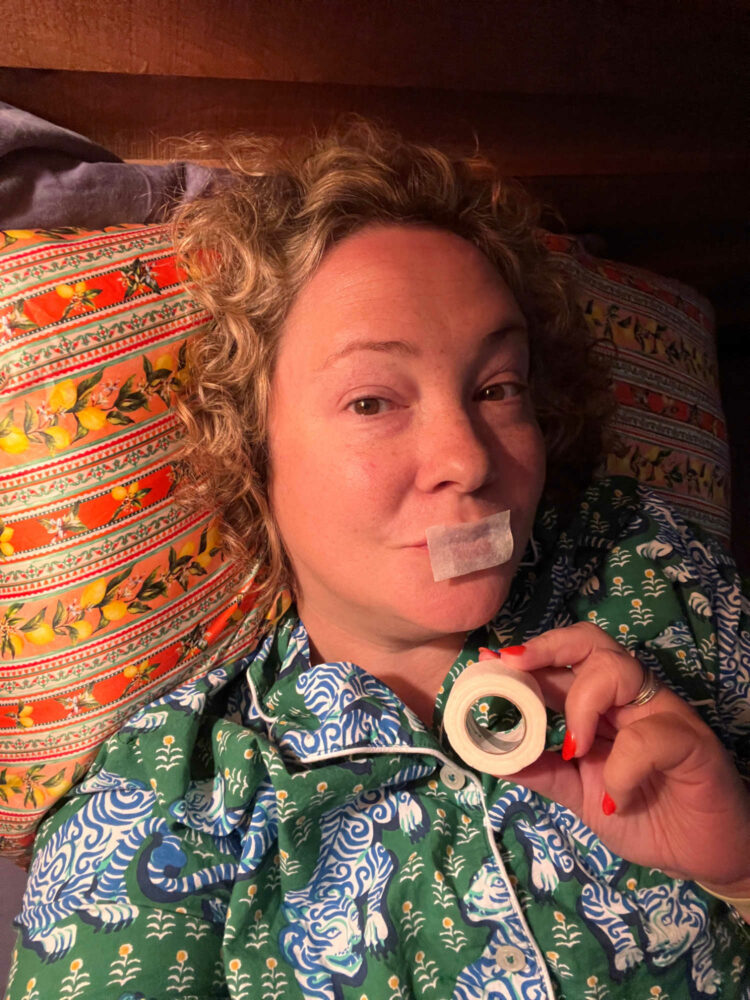
Once we finished the box of Dr. Johnes mouth tape we decided to research alternatives that may be cheaper and lower waste. I found that Nexcare medical tape was highly recommended, and easily found at local grocery and drug stores. Whether it's Nexcare's paper tape, which is easily found at most stores, or the pain-free tape, which is a bit harder to find but always in stock at our local CVS and on Amazon, this was just as effective, cheaper, and more versatile. The pain-free tape does hold on better when you're all slathered up with skincare and lip products.
I have to say that I truly do see the benefits of mouth taping for sleep. I've been doing it every night for over a handful of years, and have found the quality of my sleep has improved, and my nasal breathing has improved in general.
- I am not as stuffed up, but I am nose breathing during the day more often, taking deeper breaths, and even being able to work out and exert effort while still breathing through my nose. I tried doing an entire Peloton bike ride breathing through my nose and I got through almost 20 minutes before I felt I needed to gasp and pant with my mouth.
- My WHOOP scores for sleep improved. I do still have “red” and “yellow” nights of sleep, but fewer times waking, and in general I have more REM and SWS sleep each evening.
- My husband says my snoring has reduce exponentially, and some nights I am so silent he checks to see if I am still breathing. I now pack mouth tape for all travel, knowing this is a way I can be a more enjoyable travel partner, not snoring up a storm when we share rooms, tents, or a small rental space.
What Tape To Use For Mouth Taping
Nexcare Strong Hold Pain-Free Removal Tape
Nexcare Strong Hold Pain-Free Removal Tape is water-resistant medical tape that will stay secured for up to 48 hours, yet is gentle enough for sensitive skin. Many reviewers report successful mouth taping with this tape. It comes in a roll that can be cut to ensure a perfect fit for mouth taping.
This is what my husband and I finally decided to use for mouth taping, and we find it the easiest and most effective. It's the tool for mouth taping that stays in place even if I put on my night cream and oils and lip mask. I also haven't dealt with any breakouts at the taped area, which I know some have experienced with tape made specifically for mouth taping.
My husband uses a long strip, folding over each edge, having it go across the entire mouth and lips. I personally like a shorter piece that just holds my lips together but if I need to breathe, cough, etc. I have the edges of my mouth still available to breathe through my mouth. The amount of tape you use on your mouth doesn't seem to affect the results from mouth taping.
Viory Gentle Tape
You may be experiencing the benefits of mouth taping for sleep, but what good is it if you're waking up with sticky adhesive all over you every morning? Viory's mouth tape is hypoallergenic, latex-free, and skin-friendly cotton.
The breathable design, though it does keep your mouth closed, allows for a bit of air flow if and when necessary. This is a great option if you do want your entire mouth covered, but don't want to feel like you're suffocating.
The Patch4U Skin Tape
This mouth tape is similar to the last option. Hypoallergenic, gentle on the skin, and a skin-friendly cotton design. The difference though is its transparent design and small hole in the middle.
You don't have to tear out the middle piece, but I know for me, I would appreciate that little peace of mind. Though it's gentle and allows for airflow, it doesn't slip and slide around your face all night long.
Niveus Gentle Silicone Tape Strips
If you want something that feels like the real deal, these strips are dentist developed, use clear soft perforated silicone, and are FSA and HSA approved. Like I said before, any mouth tape can work, but I understand being particular about what you do or don't put on your face.
I haven't personally tried this mouth tape, so I can't speak much of its performance. I do know that the reviews are a little back and forth, with some saying that the tape isn't big enough to cover the entire mouth. As I said before, though, you can still experience the benefits of mouth taping for sleep even if it's not covering your entire mouth.
What are your thoughts on mouth taping?
I’d love to know your thoughts on mouth taping. Have you tried it or are you considering trying it? What do you think about the benefits of mouth taping for sleep? Good enough to try or are you sitting this one out? Share your thoughts in the comments below.
For more ways to get a better night's sleep, check out my post Seeking Sleep: Ways to Sleep Better and Longer. And, as always, see what's else on the blog for fashion, beauty, and lifestyle tips and inspiration.


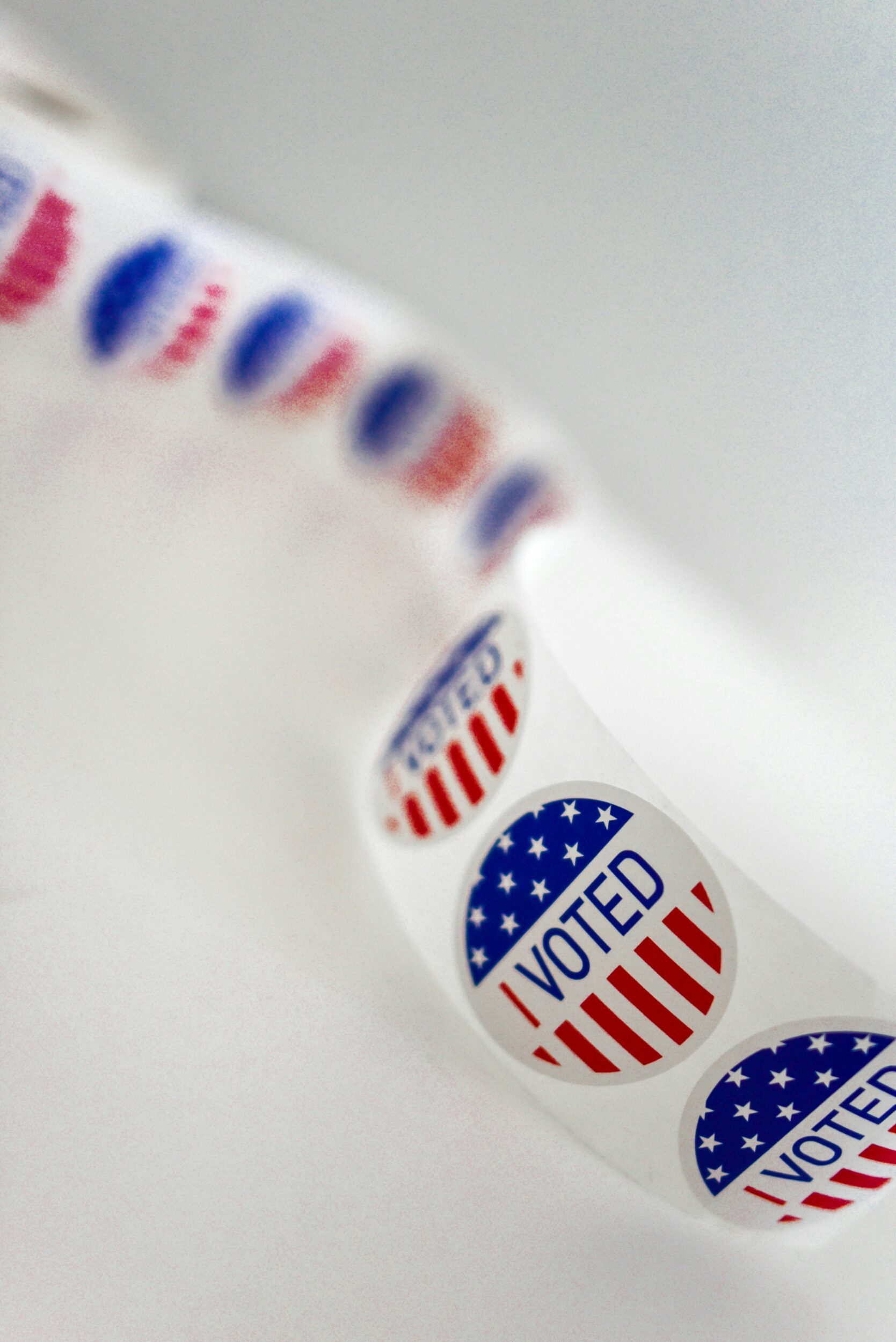

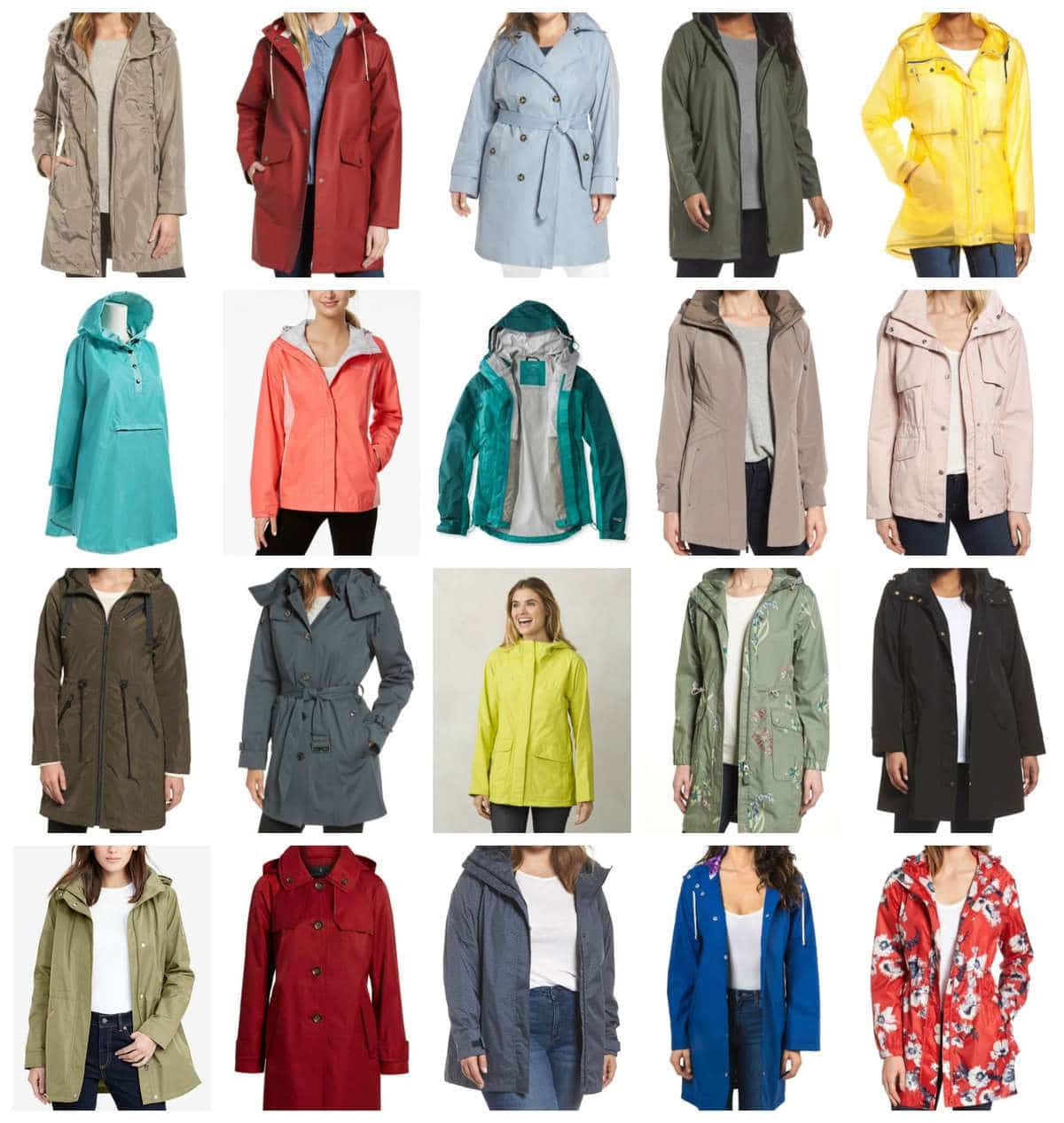

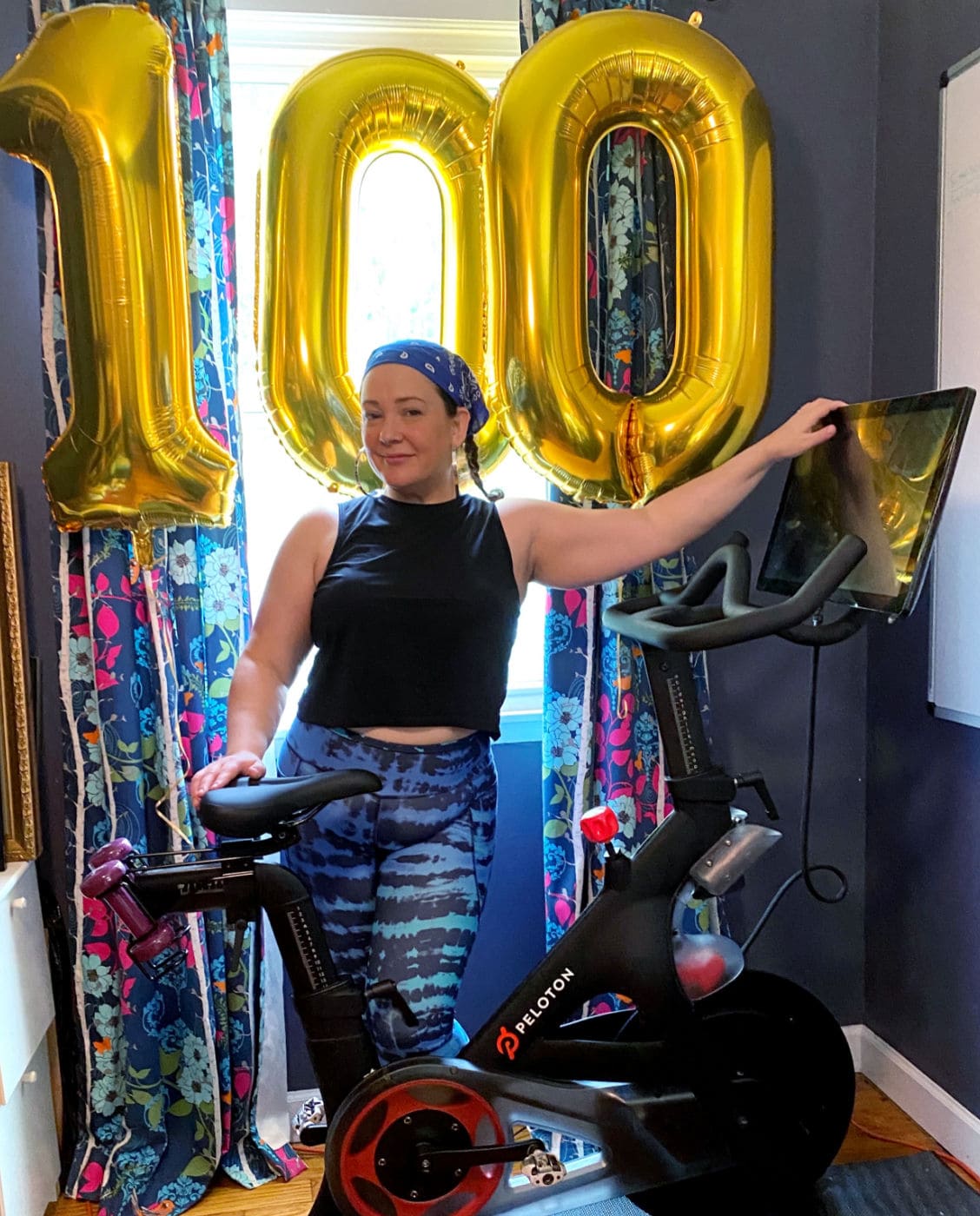
My husband and I use CPAP machines – best sleep we’ve ever had. I highly recommend the testing (we did at home). My sleep apnea was significantly more severe than I realized!
When I had my sleep study (done in a lab) I thought I was waking up 2-3 times a night but the study showed that I would stop breathing up to 60 times/hour. No wonder I was tired in the morning! I guess, based on my experience, I would recommend having a sleep study done before deciding on a method to use.
Ditto on what my initial sleep study determined. I love my CPAP for the quality of sleep that I get. I also use a chin strap to keep my lower jaw from falling open and Azelastine spray (Astepro) for allergies to help keep my nasal passages open.
I’ve been doing it since January! I heard about it on the Live More, Feel Better podcast when Dr Chatterjee interviewed James Nestor (author of Breath). Figured it was a pretty cheap experiment and had been having a particularly stuffy winter. I use the nexcare tape (so far my investment of $7 for two rolls is holding up well! Will probably get at least halfway through 2024 and have a roll in my travel kit and a roll at home). Vastly reduced snoring, improved my ability to breathe through my nose, reduced my allergies and addressed dry mouth. I used to go through half a water bottle every night due to feeling so dry and thirsty during the night. I’ll keep doing it; it’s such an easy hack.
After reading ‘Breath’ by James Nestor, my husband and I have been using a postage-stamp size piece of 3M Micropore vertically on our lips for years, with great results. We find a smear of balm on our lips, first, prevents them becoming raw.
Thanks for sharing this. I am a big fan of mouth taping and use a postage stamp size of paper nexguard tape. I really notice the difference when I dont have it. I was introduced to this in the book “Breath,” which I highly recommend.
I’ve been mouth taping on and off for a couple of years thanks to Allison’s initial post. I need to be more consistent because it really decreases snoring and dry mouth.
Thanks so much!
Very interesting post. I use a product available in the uk called Snoreze which is a piece of tape that goes over the bridge of the nose, opening out the nasal passages. This has massively improved my sleep quality. It’s sometimes used by elite athletes here which is where I first saw it (on marathon runner Paula Radcliffe).
We have something here that is similar called BreatheRight strips. I have used them, they do help!
I wear a large mouth guard when I sleep and especially when I lie on my back, I notice my mouth gets dried out. I have been using dry mouth rinse, but it doesn’t help. I will try the Nexgard tape!
FYI, Amazon is banning mouth tape as of Jul31. They announced to 3rd party sellers last week:
“Starting July 31, 2023, mouth tape, also known as sleep tape, will no longer be permitted for sale on Amazon.
Customers who use mouth tape while sleeping face potential risks, such as an allergic reaction and obstructed breathing. For the safety of Amazon customers, any mouth tape product listings will be removed from our store.”
Fascinating! Thank you for sharing this.
I am intrigued! I also want to recommend Goli Ashwaganda. You can take up to 4 a day but I have just taken one at bedtime for a year now and seem to wake up way less than I used to.